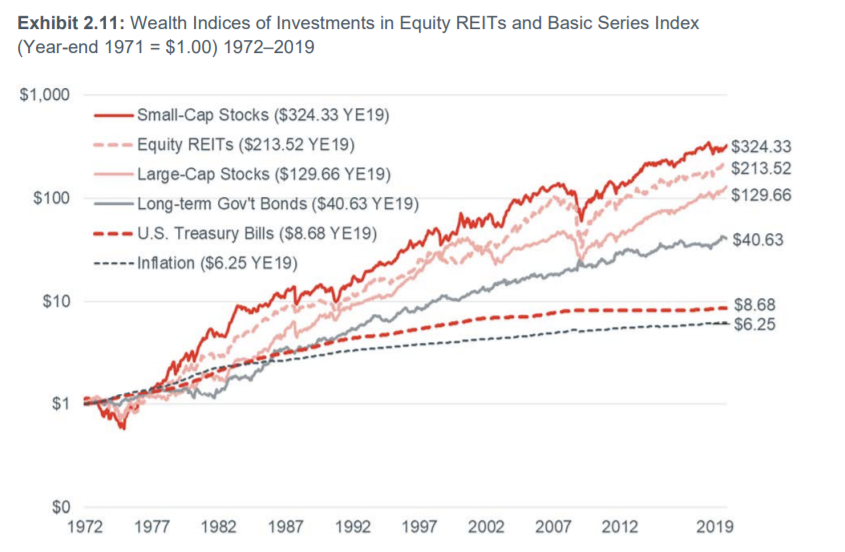Stock market investors like to talk about the long term. Real estate investors, on the other hand, often focus on the short term.
An obvious concern with this bias is that stocks are cheap and easy to trade, while real estate is difficult and expensive to buy or sell.
Yet, the popularity of real estate flipping is alluring to investors. Entire cable television networks seem dedicated to shows about how to become a real estate millionaire.
The truth is that real estate is profitable, but there is no need to flip it to benefit. There isn’t even a need to invest directly in real estate.
In the very long run, real estate investment trusts, or REITs, are the second-best performing asset class.
Stocks, Bonds, Bill and Inflation 1972-2019
REITs Outperform Large-Cap Stocks
My colleagues Matt Clark and Charles Sizemore have often discussed REITs, including the names of REITs that are excellent investment opportunities right now. You can listen to a recent discussion in this episode of The Bull & The Bear.
Their bullishness is well-founded.
While small-cap stocks are the best performer, REITs have delivered better returns than large-cap stocks over the long term. Yet, many investors have little if any exposure to REITs.
One reason REITs are overlooked is that they’re considered income trades. REITs generally provide safe income because tax rules require the trust to distribute at least 90% of its taxable income to shareholders.
As long as the trust meets that requirement, REITs typically don’t pay any corporate income taxes because their earnings have been passed through to their investors. So, REITs tend to comply with tax rules that could deliver steady income and strong returns to investors.
Perhaps best of all, REITs don’t require buying, fixing and selling real estate. They are as easy and inexpensive to trade as stocks.
Michael Carr is a Chartered Market Technician for Banyan Hill Publishing and the Editor of One Trade, Peak Velocity Trader and Precision Profits. He teaches technical analysis and quantitative technical analysis at the New York Institute of Finance. Mr. Carr is also the former editor of the CMT Association newsletter, Technically Speaking.
Follow him on Twitter @MichaelCarrGuru.





